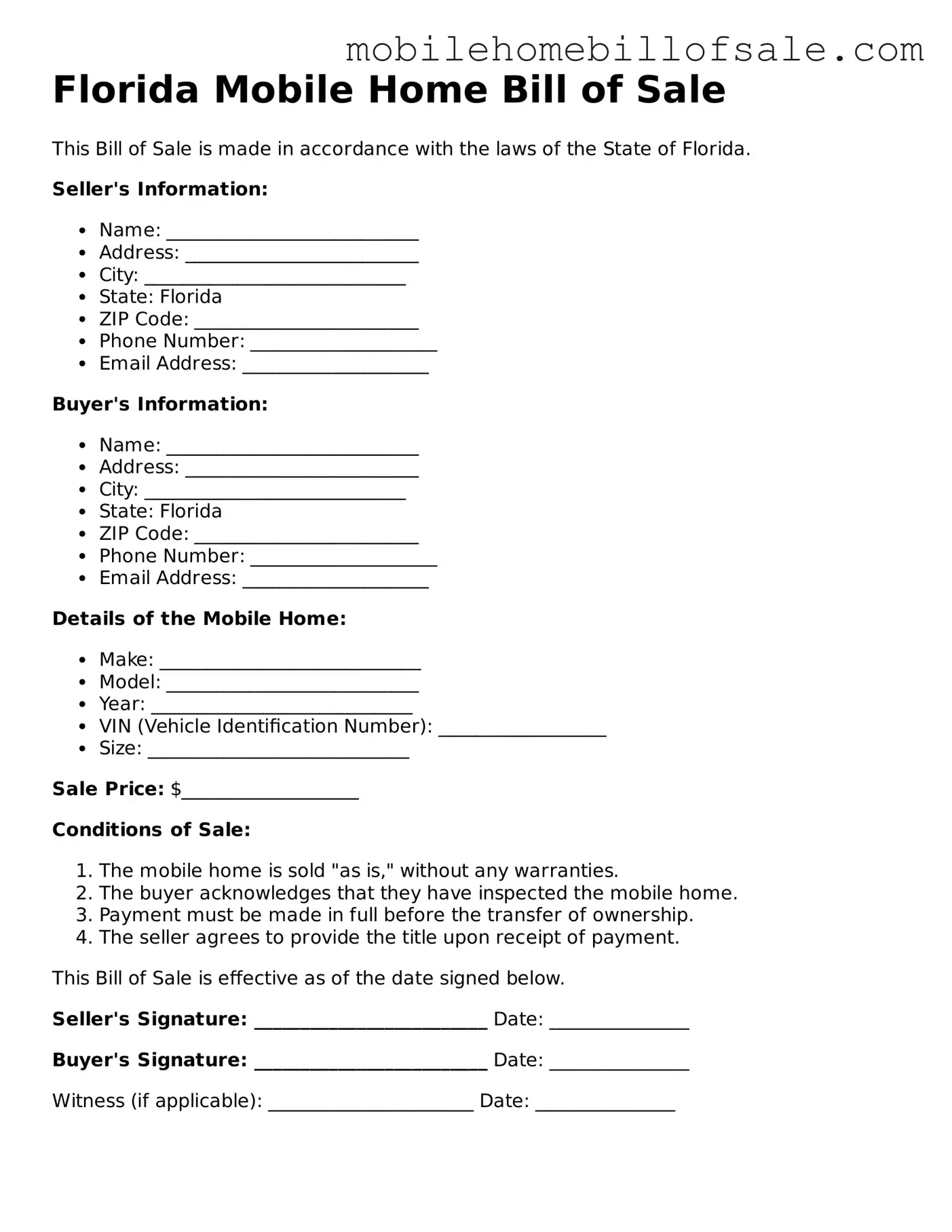The Florida Mobile Home Bill of Sale is similar to a traditional vehicle Bill of Sale. Both documents serve as proof of ownership transfer. When you buy or sell a car, the Bill of Sale outlines the details of the transaction, including the buyer, seller, and vehicle information. Just like in mobile home transactions, it’s essential to document the sale to protect both parties and ensure a clear transfer of ownership.
Another document that shares similarities is the Real Estate Purchase Agreement. This agreement outlines the terms of a real estate transaction, including the purchase price, property details, and closing conditions. Much like the Mobile Home Bill of Sale, it formalizes the transfer of property rights, ensuring that both the buyer and seller understand their responsibilities and the terms of the sale.
The Lease Agreement is also comparable. While it doesn’t transfer ownership, it establishes the terms under which a mobile home may be rented. This document details the rights and obligations of both the landlord and tenant, similar to how a Bill of Sale clarifies the responsibilities of the buyer and seller in a mobile home transaction.
A Power of Attorney form can be similar in that it grants someone the authority to act on behalf of another. If a seller cannot be present for the sale of their mobile home, they may use a Power of Attorney to authorize someone else to sign the Bill of Sale. This ensures that the transaction can proceed smoothly, even if the seller is unavailable.
The Title Transfer document is crucial in both mobile home and vehicle sales. It officially changes the ownership of the property. In Florida, when a mobile home is sold, the title must be transferred to the new owner, just as it would be for a car. This document is essential for ensuring that the new owner has legal rights to the property.
A Warranty Deed is another document that shares similarities, especially when it comes to real property. This deed guarantees that the seller has the right to sell the property and that the property is free from any liens or claims. While a Mobile Home Bill of Sale doesn’t provide the same level of guarantee, it still serves to protect the buyer by confirming that the seller is transferring ownership legitimately.
The Affidavit of Ownership is relevant as well. This document is often used to assert that the seller is the rightful owner of the mobile home. In a similar vein, the Mobile Home Bill of Sale serves to confirm ownership transfer, but the affidavit provides an additional layer of assurance that the seller has the legal right to sell the property.
A Certificate of Title is similar in that it serves as proof of ownership. When you purchase a mobile home, you receive a certificate that proves you own it, much like a car title. The Bill of Sale and the Certificate of Title work together to establish clear ownership and facilitate future transactions.
Lastly, a Sales Agreement can also be compared to the Mobile Home Bill of Sale. This document outlines the terms of sale, including price, payment method, and delivery details. While the Bill of Sale primarily serves as a receipt for the transaction, a Sales Agreement can provide more comprehensive details about the sale process, ensuring both parties are on the same page.

